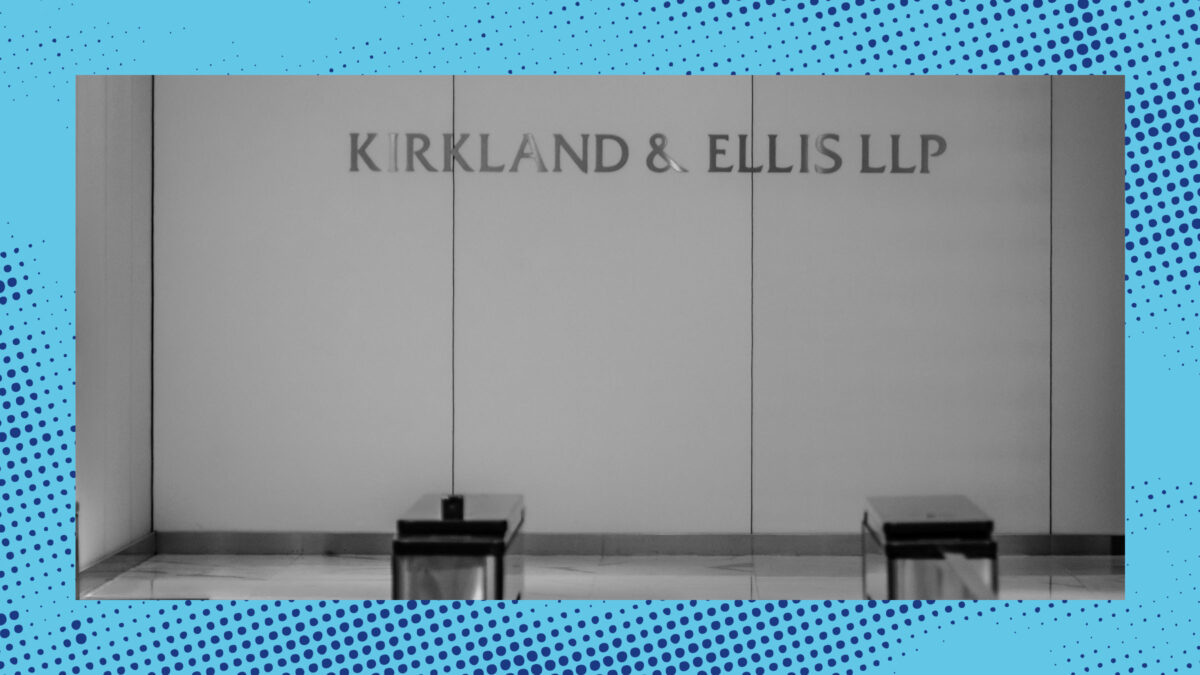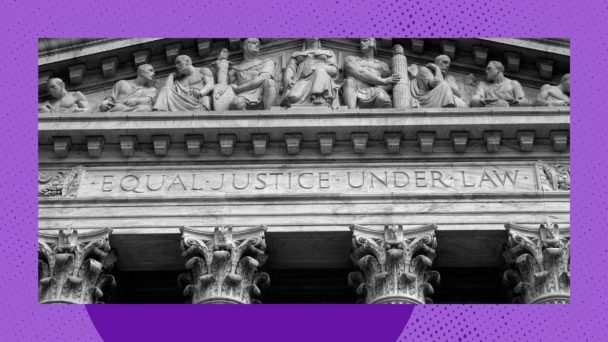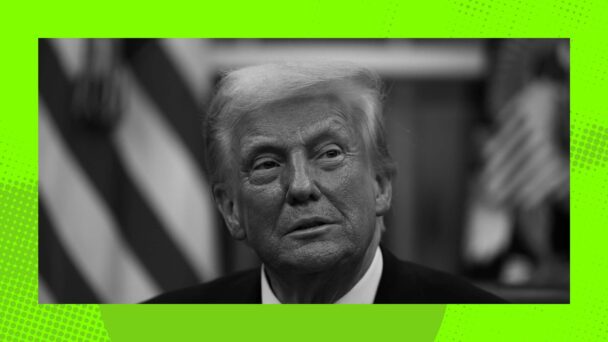Earlier this week, The Boston Globe published a column that dares to ask the hardest question facing the legal profession today: Have white-shoe law firms that protect the ballooning profit margins of sprawling multinational corporations become too woke for their own good?
The column, titled “Big Law’s Cancel Culture,” comes from Above the Law co-founder David Lat, who now writes a Substack newsletter for law firm partners thumbing through emails in the AmEx Centurion Lounge en route to an opioid manufacturer’s shareholders’ meeting. His thesis is that BigLaw—a term that refers to the country’s biggest and most profitable law firms—has been “seized by ideological intolerance and groupthink.” Liberal lawyers, he argues, wield their power to silence their would-be conservative colleagues, to the detriment of everyone involved.
“Ideological uniformity in Big Law, whether on the right or the left, is not a good thing—not for lawyers, law firms, or the rule of law,” Lat writes.
Lat’s jumping-off point is the saga of Paul Clement and Erin Murphy, two conservative lawyers who, until recently, represented the National Rifle Association at Kirkland & Ellis. Last summer, just hours after the Supreme Court announced a dramatic expansion of the Second Amendment in a case Clement argued, Kirkland told them that they needed to either drop the NRA or find a different employer. Unwilling to cut their lucrative ties with the nation’s largest anti-gun safety organization, the pair founded their own firm, Clement & Murphy. Today, they are finally free to argue that the Constitution’s original meaning requires arming every third-grader in America, unencumbered by the prospect of meddling institutional pushback.
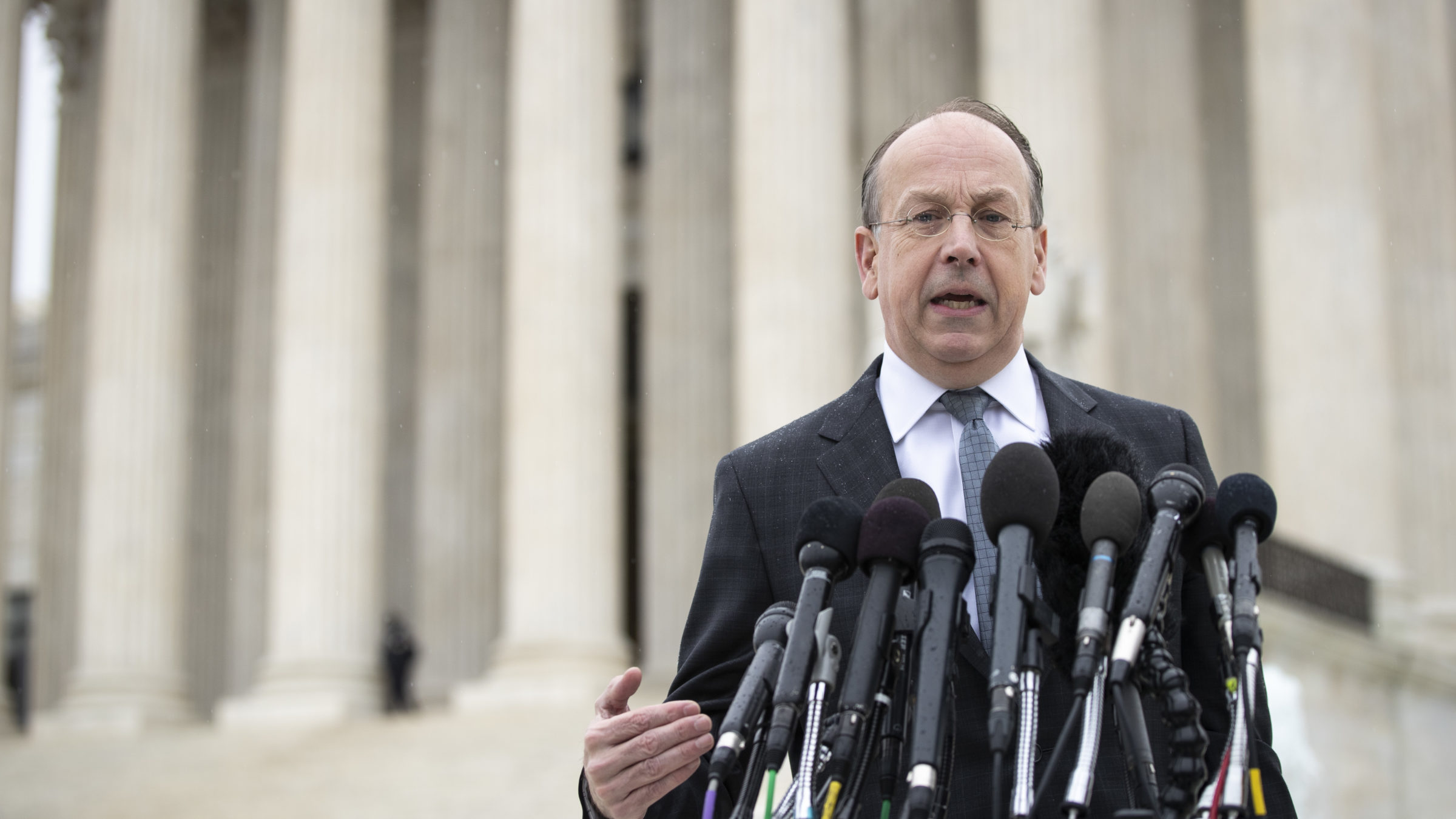
When you’re a big-shot guns lawyer AND a name partner in your own law firm (Photo by Drew Angerer/Getty Images)
Lat presents this episode as evidence of Kirkland & Ellis’s institutional wokeness—the misguided crusade of an organization that could not abide a pair of undesirables within its ranks. Notably absent from this narrative is the fact that Kirkland’s ultimatum was motivated not by principle, but by profit: The firm “started getting a lot of pressure post-Uvalde, hearing from several big-dollar clients that they were uncomfortable,” The Wall Street Journal reported at the time. “Several partners agreed that they should drop that representation.”
At the time, Clement’s representation of the NRA was neither new nor a secret. (In a 2013 court filing, he described the relationship as “significant” and touted his “specialized skill and knowledge” of the organization’s affairs.) But in the weeks after a gunman murdered 19 children and two teachers in a Texas elementary school classroom, some of Kirkland’s corporate clients were skittish about the optics of having their legal work handled by a firm cashing checks that were spiritually signed in blood.
In other words, Kirkland—the richest- or second-richest firm in the country, depending on your preferred metric—figured out that the cost of retaining Paul Clement exceeded the benefits of keeping him around. And the agreed-upon solution seems to have treated everyone just fine: Kirkland got to keep its deep-pocketed clients. The NRA got to keep its preferred lawyers, and those lawyers got to keep the NRA. None of the (handsomely compensated) characters in this drama were meaningfully harmed, other than Wall Street Journal subscribers who had to endure a mewling op-ed from Clement and Murphy about the burdens of having to change their letterhead. On the spectrum of cancel culture cautionary tales, this is about as dull as it gets.
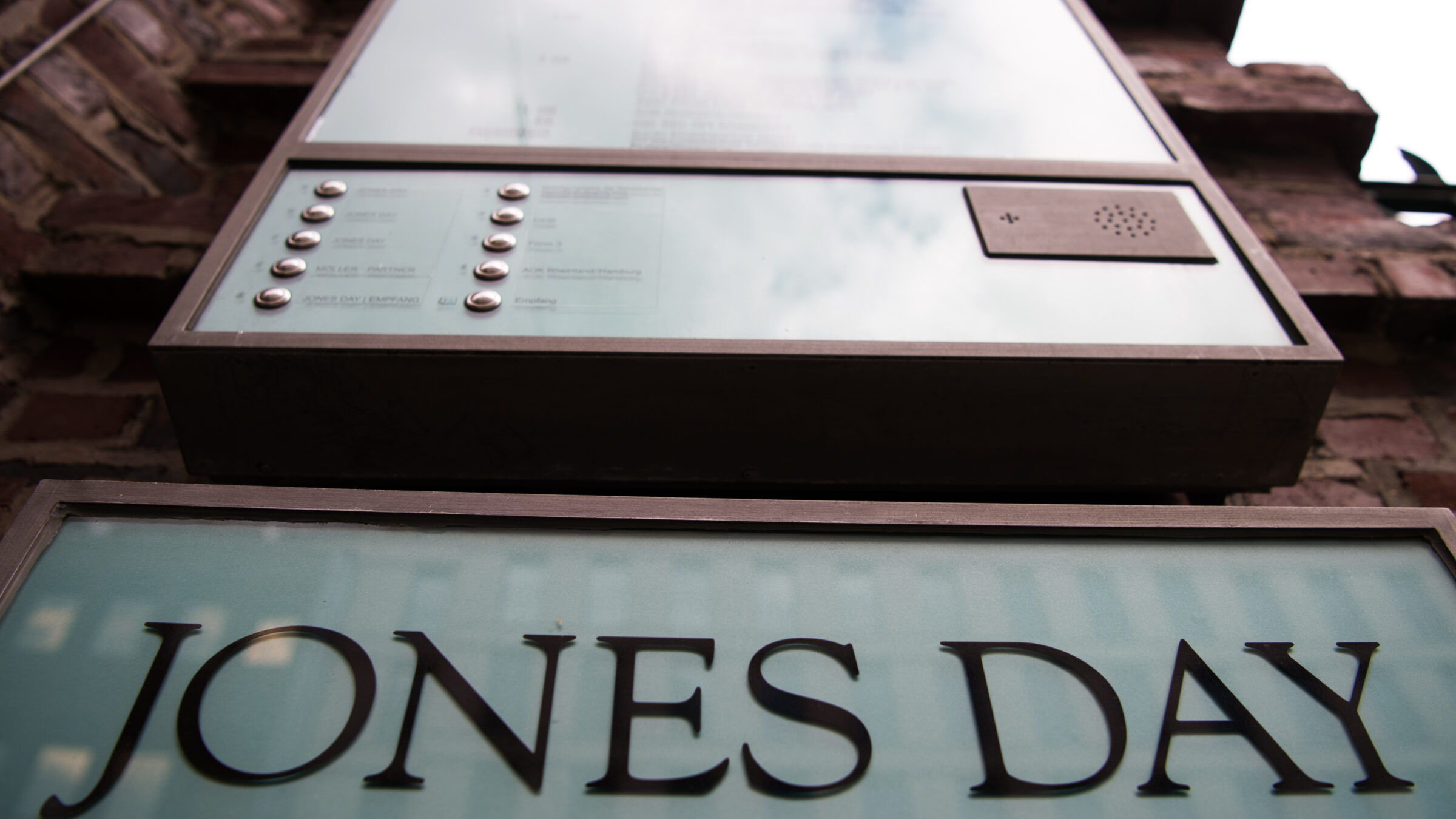
(Photo by Monika Skolimowska/picture alliance via Getty Images)
Lat goes on to assert that the dangers for conservatives in BigLaw include not only “representing unpopular clients,” but also “articulating an unpopular opinion.” Again, his evidence does not hold up to scrutiny. In Lat’s telling, Hogan Lovells terminated a woman for expressing “support” for the Supreme Court’s decision in Dobbs v. Jackson Women’s Healthcare Organization. In reality, she was a retired equity partner who, in the middle of a conference call for women at the firm, invoked the conspiracy theory that abortion is a tool of Black “genocide”—a choice that evinces at least as much casual racism as it does poor judgment. Another anonymous woman ostensibly forced from her firm for anti-choice beliefs apparently made off with “a seven-figure sum” for her troubles. As always, those bleating the loudest about the perils of cancel culture sure are adept at turning a profit from it.
Setting aside the trials and tribulations of individual victims, the real losers of the BigLaw culture wars, Lat writes, are BigLaw firms, who in their quests for ideological purity deprive themselves of the intellectual diversity these colleagues would provide. “To successfully represent their clients, lawyers need to understand all sides of an issue,” he writes. “If liberal or progressive lawyers are not exposed to conservative viewpoints, they will be less effective as advocates.”
Of the many wrong statements in this essay, this one is the wrongest, because it conflates the personal beliefs of BigLaw attorneys about a handful of social issues unrelated to their jobs with the unrelentingly pro-corporate work they do for 12 hours a day, six minutes at a time. If you are a liberal junior associate doing document review for a bank facing a slew of redlining allegations, it does not matter if your batches are assigned by a partner who thinks affirmative action is racist, or if the other associates on the team think January 6 was cool. This is because what you are doing—all of you, together—is defending a bank in a fucking redlining case. For anyone who does not perceive the world as a melodrama in which they are the main character, the relevant barometer of “conservatism” in BigLaw is what BigLaw does, not the March For Life attendance records of the lawyers who comprise it.
Lat attempts to head off this point by gesturing to the landscape of BigLaw pro bono work, which he says is characterized by an “overwhelming imbalance in favor of the left.” (His source: Eugene Scalia said so at a FedSoc event.) If law firms were to commit more free work to conservative causes, he argues, “that would send a powerful message to rank-and-file lawyers about the firm’s commitment to viewpoint diversity.”
This analysis glosses over the fact that pro bono is for people who cannot afford a lawyer, which disqualifies lots of would-be clients who want to push the law to the right. The pharmaceutical giants trying to abuse bankruptcy law to offload hundreds of millions of dollars’ worth of liability for their carcinogenic baby powder can afford to pay Neal Katyal $2,465 an hour. They don’t need lawyerly charity.
More importantly, BigLaw firms spend 99 percent of their time doing inarguably conservative work: They fight regulation, oppose workers’ rights, and do everything in their power to maximize corporate profits. Pro bono agendas that center migrants, criminal defendants, and other marginalized people are best understood not as evidence of what BigLaw is, but as a sort of penance for the daily grind of championing e-commerce giants who extract generous tax breaks from cash-strapped municipalities that still won’t fully fund public defense. (Ditto the analyses that show that political donations from law firm employees flow mostly to Democrats.) To the extent that pro bono dockets or campaign contributions skew left, they do so within the confines of a thuddingly pro-capital system that funnels millions of billable hours into making sure that rich people—clients and their lawyers alike—stay that way.
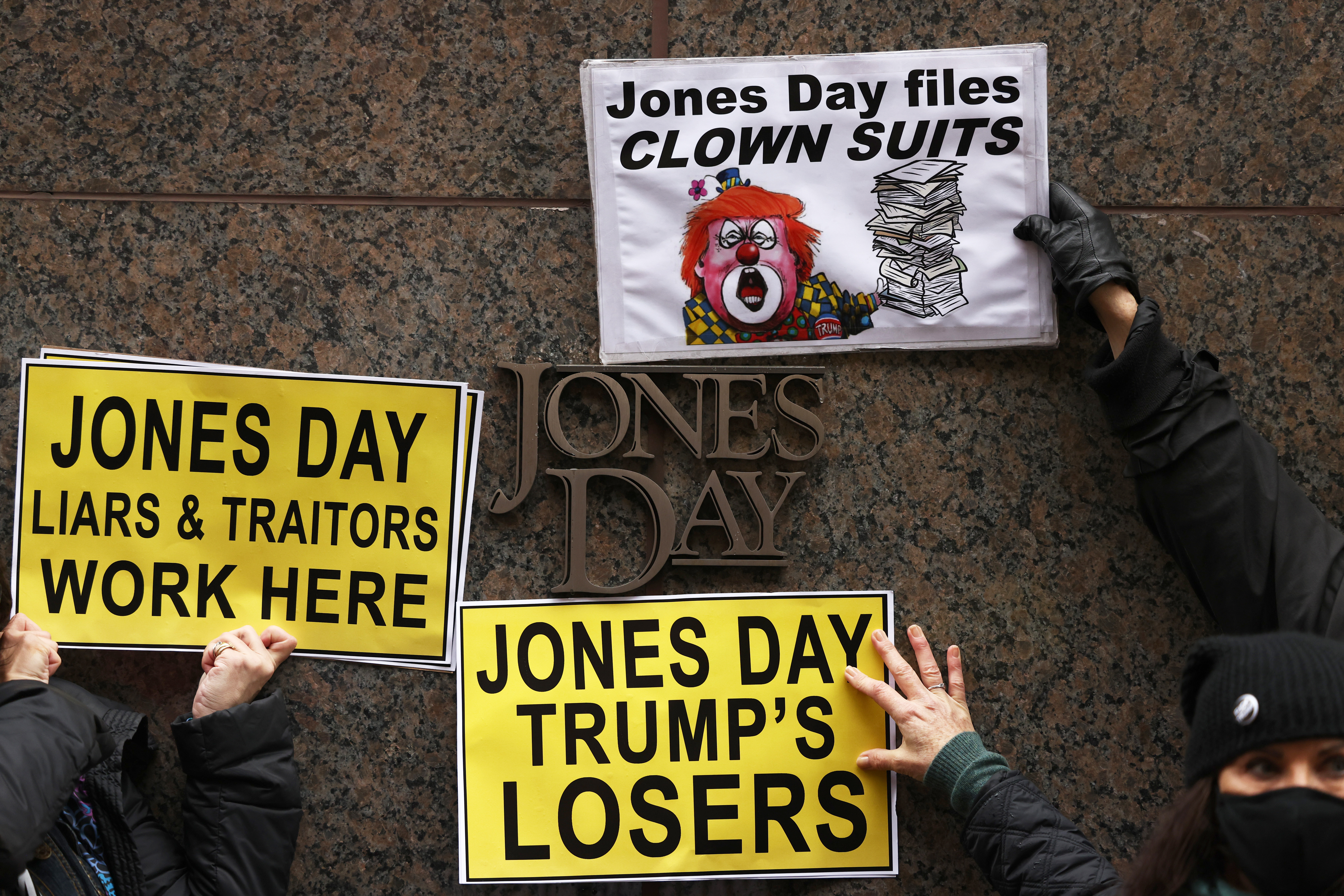
(Photo by Michael M. Santiago/Getty Images)
“Wokeness” is by design a slippery concept, its meaning shifting for the convenience of whatever point a National Review blogger wants to make at that particular moment. But in an era where the right has made the term more or less synonymous with racial diversity, law firms again defy the definition, because BigLaw remains overwhelmingly male and blindingly white. Less than a quarter of equity partners at U.S. law firms are women; nine percent of equity partners are people of color. In 2020, the percentage of all partners who are people of color cracked double digits for the first time in history. At the very least, if firms were the engines of liberal hegemony that critics imagine, you might expect them to have hired more than a few non-elderly white guys during the process.
Lastly, although Lat bemoans the supposed isolation of social conservatives in law firm culture, he does not interrogate why that isolation might be taking place. “Mutual toleration” and “respect” are treated as one-way entitlements: The notion that some women lawyers might not want to spend late nights closing deals with co-workers who think them undeserving of bodily autonomy seems not to have occurred to him. (Ditto the fact that lawyers who openly oppose civil rights for their LGBTQ colleagues are perhaps not demonstrating the “mutual toleration” and “respect” for which he calls.) Cancel culture alarmists maintain this myopic focus on discourse—on the meta-question of Why We Can’t Talk About Things Civilly Anymore—because thinking about substance for more than two seconds provides a ready answer.
Right now, every industry has an aspiring Bari Weiss to chronicle its slow-motion slide into groupthink oblivion. But sounding the alarm on behalf of the legal profession’s most privileged members is not just silly. It’s pernicious, too. BigLaw revenue increased by 14.7 percent last year; Kirkland & Ellis, the firm from which Clement and Murphy ritually banished themselves, just cracked a record-setting $6 billion in gross revenue. As you read this sentence, pro-life and anti-gun attorneys are teaming up to make more money for more clients who are doing more fucked-up things to more powerless people than ever before. By recasting BigLaw firms as the newest pillars of the intolerant left, their defenders enable them to do this work exactly as they prefer: quietly.
Conservative lawyers will be fine in BigLaw. Liberal lawyers will be fine in BigLaw, too. It’s everyone else who should be afraid of it.
